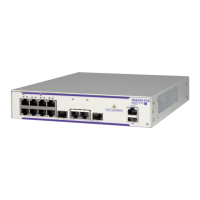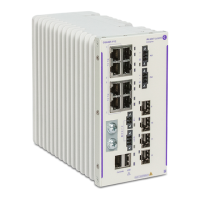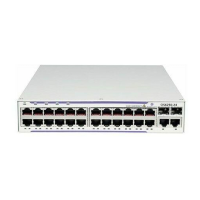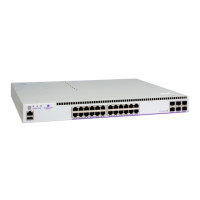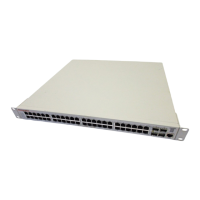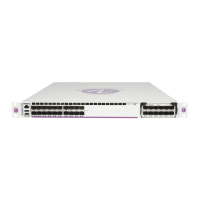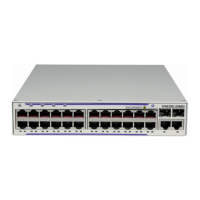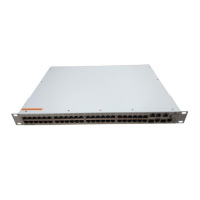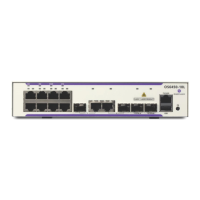Configuring VLAN Stacking Configuring VLAN Stacking Services
OmniSwitch AOS Release 8 Network Configuration Guide December 2017 page 35-19
• When a profile is created, bandwidth not-assigned and priority not-assigned parameters are not
specified. This means that even if no bandwidth value is specified or the priority is set to fixed, QoS
still allocates switch resources to enforce bandwidth and priority settings for the profile. In addition,
QoS policy rules cannot override the profile bandwidth or priority settings.
• Use the bandwidth not-assigned and priority not-assigned parameters to prevent the profile from
triggering QoS allocation of switch resources. When a profile is created using these parameters, QoS
policy rules/ACLs are then available to define more custom bandwidth and priority settings for profile
traffic. For example, mapping several inner DSCP/ToS values to the same outer 802.1p value.
• Egress bandwidth can be configured only for SVLANs.
• A CVLAN-UNI combination associated with a SAP having egress bandwidth configuration is unique
and it cannot be configured on any other SAP with egress bandwidth configuration.
Use the show ethernet-service sap-profile command to view a list of profiles that are already configured
for the switch. This command also displays the attribute values for each profile.
Associating a Profile with a Service Access Point
After a profile is created, it is then necessary to associate the profile with a VLAN Stacking SAP. When
this is done, the current profile associated with a SAP is replaced with the new profile.
The ethernet-service sap sap-profile command is used to associate a new profile with a VLAN Stacking
SAP. For example, the following command associates the map_pbit profile to SAP 20:
-> ethernet-service sap 20 sap-profile map_pbit
To change the profile associated with the SAP back to the default profile, specify “default-sap-profile” for
the profile name. For example:
-> ethernet-service sap 20 sap-profile default-sap-profile
Use the show ethernet-service sap command to display the SAP configuration, which includes the profile
association for each SAP.
Configuring a UNI Profile
A UNI port profile determines how control frames ingressing on a VLAN Stacking UNI port are
processed. When a port is configured as a UNI port, a default Layer 2 profile (def-uni-profile) is applied
to the port with the following default values for processing Layer 2 control frames:
Protocol Default
STP tunnel
802.1x tunnel
802.1ab tunnel
802.3ad tunnel
GVRP tunnel
MVRP tunnel
AMAP tunnel
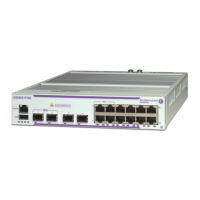
